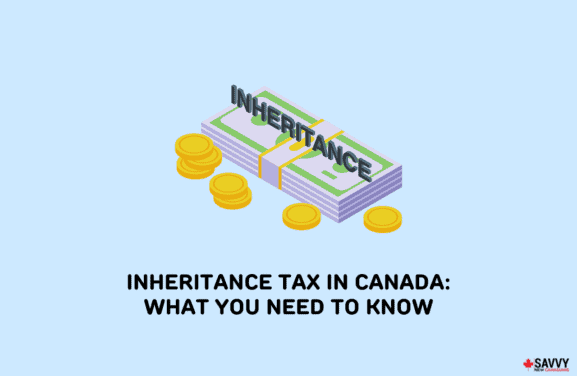Quick Answer
- The Canadian province/territory with the highest minimum wage is Yukon, set at $16.77 per hour. On the other hand, Saskatchewan has the lowest minimum wage in Canada at $14.00 per hour.
- The general federal minimum wage in Canada is $16.65.
- The minimum wage varies across Canada since each province and territory has its own employment standards legislation.
The minimum wage is the lowest wage rate an employer is legally allowed to pay its employees for their work performed.
In Canada, the highest minimum wage is in Yukon, which is $16.77 per hour with no age restriction. In contrast, the lowest minimum wage in Canada is in Saskatchewan at $14.00 per hour.
The federal minimum wage is $16.65 as of April 2023.
The minimum wage is different across Canada since each province and territory establishes its pay rate according to the cost of living.
What is the Highest Minimum Wage in Canada?
Yukon has the highest minimum wage in Canada at $16.77 per hour. It has been the rate since April 1, 2023.
The decision to increase came after a consultation process that involved reviewing information about the cost of living in the territory, available social supports, and minimum wage levels across Canada.
Minimum Wage By Province
Below is the current minimum wage across Canada.
| Province | Minimum Hourly Wage | Effective Date |
| Alberta | $15.00 | As of October 1, 2018. |
| British Columbia | $16.75 | As of June 1, 2023. |
| Manitoba | $15.30 | As of October 1, 2023 |
| New Brunswick | $14.75 | As of April 1, 2023. |
| Newfoundland & Labrador | $15.00 | As of October 1, 2023 |
| Northwest Territories | $16.05 | As of September 1, 2023 |
| Nova Scotia | $15.00 | As of October 1, 2023 |
| Nunavut | $16.00 | As of April 1, 2020 |
| Ontario | $16.55 | As of October 1, 2023 |
| Prince Edward Island | $15.00 | As of October 1, 2023 |
| Quebec | $15.25 | As of May 1, 2023 |
| Saskatchewan | $14.00 | As of October 1, 2023 |
| Yukon | $16.77 | As of April 1, 2023. |
Minimum Wage Rules and Exemptions in Canada
Below are the minimum wage rules and exemptions in some provinces in Canada.
Ontario
The Ontario minimum wage is $16.55, effective October 1, 2023.
Its Employment Standards Act states that employers and employees must follow the legislation regarding wages, continuity of employment, work hours, absences, overtime, and others.
The legislation also lists exemptions to the Act, which include:
- Employers and employees under the jurisdiction of federal employment law
- Diplomatic personnel
- Students who work under a program run by a college or university
- Individuals who perform community participation work
- Police officers
- Inmates
- Directors of a corporation, etc.
British Columbia
The BC minimum wage is $16.75, effective June 1, 2023.
The Employment Standards Act of British Columbia states that the minimum wage legislation covers casual, probationary, temporary, and part-time employees working in the province.
As to exemptions, certain employees are not subject to minimum wage requirements. These include:
- Federally-regulated employees, and
- Employees under the categories stated in the Exceptions section, including those working under specific arrangements and are employed for a definite term.
Newfoundland and Labrador
The Newfoundland minimum wage is $15, effective October 1, 2023.
The Newfoundland and Labrador Labour Standards Regulations under the Labour Standards Act requires all employers to meet the legislated minimum employment standards such as:
- Minimum wage
- Hours of work
- Leave entitlements
- Vacation
- Paid public holidays
- Termination of employment, etc.
Saskatchewan
The Saskatchewan minimum wage is $14.00, effective October 1, 2023
Saskatchewan specifies that employers must pay their employees at least the minimum wage for each hour that they render work.
As to exemptions, the Saskatchewan Employment Act states that there are employees exempted from receiving minimum wage. These include:
- Federally regulated businesses and industries
- Family businesses employing only immediate family members
- Farming, ranching or market garden labourers
- Athletes, while engaging in their athletic undertaking
- Self-employed individuals
- Babysitters who work in temporary or sporadic conditions
- Student learners
What is the Lowest Minimum Wage in Canada?
The lowest minimum wage in Canada is $14.00 per hour in Saskatchewan. However, it’s set to increase to $15.00 per hour on October 1, 2024.
How Many People Earn the Minimum Wage in Canada?
Data from Statistics Canada shows that between 1998 and 2018, the percentage of employees earning the minimum wage in Canada increased from 5.2% to 10.4%.
Meanwhile, the Labour Force Survey estimates that 42,000 federally regulated private sector (FRPS) workers (or 5% of all FRPS employees) earned the minimum wage in the province where they worked in 2017.
In comparison, workers earning minimum wage in Canada overall was at 7% in the same year. This equates to 1.018 million workers in the country (excluding the territories, for which figures were unavailable).
Minimum Wage in Canada for Foreigners
Canada does not have a policy that dictates different wage rates to immigrants since it treats all citizens and immigrants equally.
Whatever type of work immigrants may have, whether they are paid hourly, by salary or by other means, they are all entitled to the general minimum wage.
The current minimum wage in Canada for foreigners and Canadians alike is $16.65 per hour.
Foreigners who wish to work in the country may need to obtain a work permit, a visitor visa, or both to gain entry to Canada.
FAQs
The highest living wage in Canada in 2022 was $32.75 in Canmore, Alberta. It took a plunge from $37.40 in 2021.
The hourly rate of $14.00 in Saskatchewan is currently the lowest in Canada. It is, however, scheduled to increase to $15.00 by October 2024.
A liveable salary in Canada that may enable you to live comfortably would be CAD 42,000 to CAD 59,000 per year. The actual amount would depend on where you live and the cost of living expenses.
As of February, the average rent in Canada is $2,149 per month. There’s been an increase of 11.1% from a year ago.



